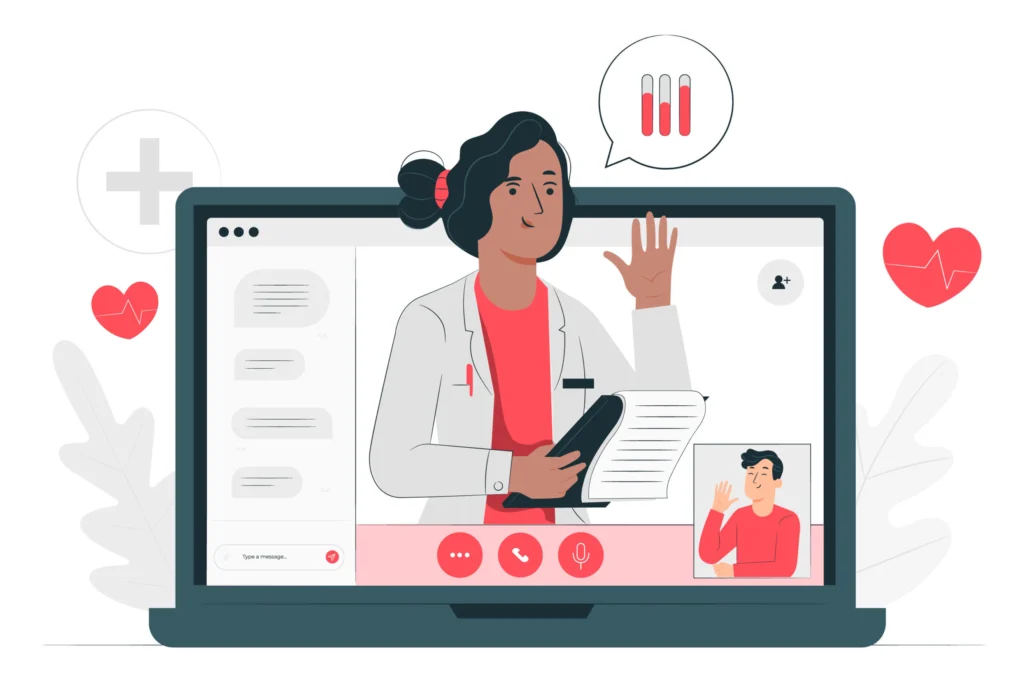Electronic Health Record (EHR) systems have transformed how healthcare providers manage patient data, collaborate, and deliver care. From documenting visits to tracking prescriptions, EHR platforms serve as digital backbones of medical practices. However, as these systems become more complex, understanding how they’re used and how they can be optimized becomes increasingly important.
Audit logs, often overlooked, hold the key to unlocking hidden insights into daily operations. By analyzing these logs, small clinics and mental health practices can streamline workflows, identify inefficiencies, and enhance overall patient care.
Why Audit Logs Matter in EHR Software Systems
Audit logs in EHR systems record every user interaction, capturing when, how, and by whom data is accessed or modified. This granular visibility is not just about security, it’s a goldmine for optimization.
By examining audit trails, practices can see exactly how their teams interact with the system, uncovering hidden workflow patterns, delays, and missed opportunities. For small clinics and mental health providers, these insights are invaluable.
Understanding Audit Trails in EHRs
An audit trail is a time-stamped log that documents all activities and user interactions within an Electronic Health Record (EHR) system in chronological order. This includes logins, data views, updates, deletions, and time stamps. These logs create a transparent map of user behavior, offering insights that go beyond documentation.
Key Components of EHR Audit Logs
Key elements found in EHR audit logs include user IDs, patient records accessed, timestamps, and the type of action performed. Advanced EHRs may also track screen navigation, device used, and session duration useful for deeper workflow analysis.
How Audit Logs Enhance Security and Compliance
In addition to improving efficiency, audit logs play a vital role in HIPAA compliance and data security. They help detect unauthorized access and ensure that only appropriate personnel view sensitive information. This dual-function compliance and optimization make audit logs an essential feature of modern EHR systems.
Mapping Workflows Using EHR Audit Logs
Understanding EHR usage workflows requires tracking how various users such as nurses, therapists, and administrative personnel engage with the system during each stage of a patient’s care process. Audit logs enable clinics to see these workflows in action, revealing inefficiencies and room for improvement.
What Are EHR Utilization Workflows?
EHR utilization workflows refer to the sequence of actions taken by different staff members within the EHR system to complete tasks like patient intake, documentation, billing, and follow-ups. Understanding these workflows helps optimize them for better outcomes.
Real-Time Data Tracking and Usage Patterns
Audit logs allow real-time monitoring of how features are used. For instance, if therapists take too long to complete session notes, the issue could stem from system complexity or inadequate training issues identifiable via usage data.
Identifying Gaps and Bottlenecks in Practice Operations
By analyzing time stamps and action sequences, you can identify where bottlenecks occur such as delays in follow-up reminders or incomplete billing documentation. This empowers practices to implement targeted changes.
Benefits of Workflow Inference Through Audit Logs
Inferring workflows from audit logs is not just a technical exercise, it brings real-world benefits that improve patient outcomes and operational efficiency.
Free Healthcare Workflow Audit Toolkit, Diagnose Before You Automate

Optimizing Staff Efficiency
When staff members are spending excessive time on redundant clicks or navigating complex interfaces, audit logs reveal those inefficiencies. Practices can then redesign workflows or retrain staff to boost productivity.
Improving Patient Care Delivery
Streamlined EHR workflows allow healthcare providers to spend more time with patients and less time on administrative tasks. Timely access to accurate records also supports faster, more informed clinical decisions.
Reducing Documentation Errors
Audit logs can highlight patterns in incomplete or incorrect documentation. Addressing these errors at the source reduces legal risks and improves care continuity.
Practical Applications in Mental Health Practices
Mental health practices, which rely heavily on session documentation and sensitive data, can greatly benefit from EHR audit log analysis.
Best EHR for Mental Health Private Practice
The best EHR for mental health private practice is one that offers customizable templates, secure messaging, and robust audit logging. These features support clinician workflows while maintaining compliance and data integrity.
Streamlining Therapist Workflows
Therapists often juggle progress notes, treatment plans, and client communication. Audit data can help identify slow points like lagging documentation and suggest improvements, such as template adjustments or automation triggers.
Case Study: A Small Mental Health Clinic Transformation
One small clinic used audit logs to discover that their therapists were spending over 20% of their day troubleshooting EHR issues. After switching to a platform with better workflow automation and clearer navigation paths, productivity increased, and patient satisfaction improved.
Audit Log Insights for Small Practices
Small practices operate with limited resources, making efficiency crucial. Audit logs serve as a low-cost, high-impact tool for optimization.
Why EHR for Small Practices Need Audit Insights
Unlike large hospitals with IT departments, small clinics can’t afford inefficiencies. Audit logs empower administrators to self-diagnose operational issues and make data-driven improvements.
Choosing the Best EHR for Small Practices
Look for EHRs that provide full audit access, intuitive dashboards, and customizable workflows. These systems allow small teams to stay agile and compliant without heavy IT support.
Cost-Effective Workflow Enhancements
Audit-driven optimization avoids the need for costly consultants. By using internal data to make changes, small practices can enhance workflows affordably and effectively.
Features to Look for in Top EHR Systems
A good EHR system should not only store data but also help users extract value from it. Here’s what to look for when selecting or upgrading your EHR.
Customizable Audit Trails
Ensure that the system lets you customize audit logging preferences such as which actions to track and how frequently logs are updated. This flexibility enables better focus on key performance areas.
Data Visualization & Reporting Dashboards
Visual dashboards simplify the audit log review process. With graphs and usage heatmaps, even non-technical staff can identify workflow gaps and improvements.
Integration with Workflow Automation Tools
EHR systems that integrate with platforms like ClickUp, Make.com, or Monday.com allow practices to automate repetitive tasks, reducing administrative burden and enhancing efficiency.
Working with EHR Vendors to Access Audit Data
Getting the most out of audit logs often depends on how cooperative your EHR vendor is. Transparent partnerships lead to better outcomes.
Vendor Support for Workflow Optimization
Ask your vendor whether they offer workflow optimization support through audit analysis. Some vendors provide consulting or data export options for deeper insight.
Questions to Ask Your EHR Vendor
- Can I access raw audit logs directly?
- Do you offer visual dashboards for log data?
- Is workflow analysis part of your support package?
Transparency and Data Accessibility
Ensure that your EHR vendor prioritizes transparency and gives you control over your data. Limited access to logs can restrict your ability to optimize effectively.
How Ready Logic Supports EHR Workflow Automation
Ready Logic helps practices unlock the full potential of their EHR systems by integrating workflow automation tools and making sense of audit data.
Leveraging Automation with Ready Logic
By connecting your EHR to platforms like Make.com or Zapier, Ready Logic builds automated workflows tailored to your practice’s needs saving time and reducing error.
Enhancing Small Practice Efficiency
Ready Logic specializes in helping small clinics design efficient, audit-informed systems without the complexity of hospital-grade software. Their solutions focus on clarity, compliance, and scalability.
Real-World Success Stories
Ready Logic has supported numerous small practices, from solo therapists to growing clinics, in improving operations, reducing admin time, and boosting patient care through smart EHR integration.
Future of EHR Systems and Audit-Driven Insights
The future of EHRs lies in intelligent, predictive systems that do more than just record data, they analyze and suggest actions.
Predictive Analytics with AI and Audit Logs
Combining AI with audit logs will allow EHRs to predict patient needs, flag workflow bottlenecks in real time, and recommend optimizations without human intervention.
Smart Dashboards for Small Practice Growth
Tomorrow’s EHRs will feature AI-powered dashboards that adapt to user behavior, highlight inefficiencies automatically, and support continuous improvement for small practices.
Conclusion
EHR audit logs are far more than a compliance feature, they’re a blueprint for optimizing healthcare workflows. From small practices to specialized mental health providers, analyzing these logs offers a powerful, cost-effective path to improving care, efficiency, and team performance. By choosing the right EHR and partnering with support experts like Ready Logic, clinics can unlock smarter, data-driven operations.
These are the sequences of user actions within the EHR system during care delivery, from patient intake to billing.
Yes, by identifying inefficiencies, reducing documentation errors, and optimizing provider workflows.
Yes, look for systems with customizable templates, secure communications, and strong audit capabilities.
Most modern EHRs include audit logging, but accessibility and depth vary.
Ready Logic integrates automation tools and provides insights from audit logs to streamline small practice operations.





